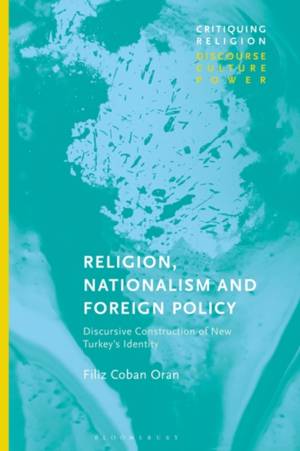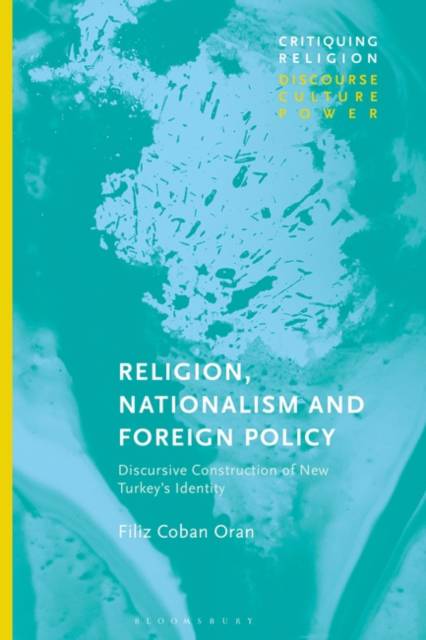
- Retrait gratuit dans votre magasin Club
- 7.000.000 titres dans notre catalogue
- Payer en toute sécurité
- Toujours un magasin près de chez vous
- Retrait gratuit dans votre magasin Club
- 7.000.0000 titres dans notre catalogue
- Payer en toute sécurité
- Toujours un magasin près de chez vous
Religion, Nationalism and Foreign Policy
Discursive Construction of New Turkey's Identity
Filiz Coban Oran
203,95 €
+ 407 points
Format
Description
This book provides a critical discussion on how different discourses of nationalism in the Turkish media construct contested concepts of New Turkey's identity, which has great importance for mapping modern Turkey's place in the world of nations.
Drawing on a Discourse-Historical Approach, the author analyses different discourses on Turkish national identity and foreign policy in Turkish media in the second term of the AKP government from 2007 to 2011, which was the period of consolidation of Muslim conservative nationalism in both internal and external relations. By using three case studies, including the Presidential elections in 2007, the launch of Kurdish Initiative in 2009, and the debate of axis shift in Western orientation of Turkish Foreign Policy in 2010, the book argues that not only has AKP's Muslim nationalism reconstructed new Turkish foreign policy, but also new Turkish foreign policy discourse has reconstructed Turkish nation's Muslim identity and reinforced Muslim nationalism.Spécifications
Parties prenantes
- Auteur(s) :
- Editeur:
Contenu
- Nombre de pages :
- 192
- Langue:
- Anglais
- Collection :
Caractéristiques
- EAN:
- 9781350270886
- Date de parution :
- 13-01-22
- Format:
- Livre relié
- Format numérique:
- Genaaid
- Dimensions :
- 156 mm x 234 mm
- Poids :
- 449 g

Les avis
Nous publions uniquement les avis qui respectent les conditions requises. Consultez nos conditions pour les avis.






